The head of the British Mountaineering Council has spoken of his worries that existing outdoor access could be curtailed under a law meant to increase the public’s right to walk England’s coastal areas.
Dave Turnbull, chief executive of the BMC, was talking during the Kendal Mountain Festival, at which the council relaunched its charity the Access and Conservation Trust.
Mr Turnbull, who recently returned from posting the first summit with ‘the climbing taxman’ Mick Fowler of Himalayan peak Gojung, said the risk was that climbers would be banned from sea cliffs and crags in Dorset that had been included in Countryside and Rights of Way Act open access land. Landowners had appealed against the cliffs’ use under the Marine and Coastal Access Act, which followed the CRoW Act and was meant to deliver the right to walk a coastal corridor around England.
The BMC boss said: “I went to the Lulworth Cove public inquiry about two months ago and it’s quite a worrying development because, basically, the landowner put in a formal objection about rockclimbing on their land, which is a large area around Lulworth and Durdle Door.
There was a meeting, a very formal planning inquiry meeting, with a planning inspector, two sides of the argument and formal presentations. It was discussing the kind of local access liaison issues that we would do very informally in a meeting with one of our volunteers and the owners.
“We’ve done these for many years all over the country, but the environment this was in was very formalised and the fact is that climbing is permitted under the CRoW Act.
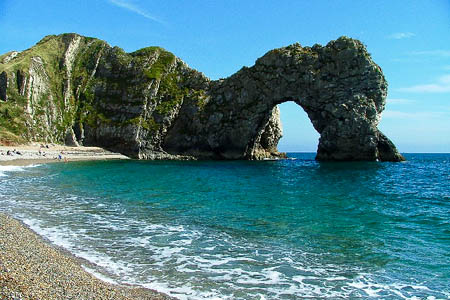
Climbing at Durdle Door and Lulworth is currently allowed under the CRoW Act. Photo: Gwyn Jones CC-BY-SA-2.0
“This is CRoW land; it would be covered by the Marine and Coastal Access Act as well, so they used the appeals procedure under the MCA Act to try and change something that is already permitted under CRoW, so it would be very bad news if it went against us.
“It would mean other landowners may look at their options. There’s no date given about when the decision will be made. The decision will be a recommendation from the inspector to the Secretary of State.
“We did a good job on the day and the planning inspector seemed a reasonable lady but we don’t know what’s going to happen.”
He emphasised that the BMC does battle for access for climbers, hillwalkers and mountaineers, though admits the Ramblers have traditionally taken the lead in the fight for walkers’ rights.
“I think broadly speaking it has historically been the case that the Ramblers are more politically active in campaigning,” Mr Turnbull said. “We are quite different organisations: the Ramblers are based in London, half a mile from Parliament; we’re based in Manchester, so they have had a different level of connection with government historically.
“CRoW was their big raison d’être for many many years whereas the BMC is more thinly spread because access is a very important aspect of what we do, but there’s a load of other stuff. Whereas they might have 10 or 15 people dealing with this, we have two or three or four.
“Also, they have actively set out to be a campaigning body for the last 20 or 30 years; we haven’t. We’ve always had a more softly softly approach working with landowners; working in conjunction and in partnership with people, not as confrontational historically as the Ramblers and campaigns tend to be confrontational. You’ve got to get your feet dirty and fall out with people.
“We’ve just taken a different line, I suppose. Having said that, we’ve done quite a lot of campaigning in recent years, to do with coastal access, Vixen Tor, some of them jointly with the Ramblers, but I don’t think we’re ever going to be on the same campaigning level as the Ramblers, simply because we’re more diverse, but it’s definitely becoming a more important aspect of what we’re doing.”
He appealed to hillwalkers to get involved with the BMC. An accusation often aimed at the council is that it is dominated by climbers and walkers don’t get a look in.
“It’s an ongoing issue and always has been,” the chief executive admitted. “The strapline always has been working for climbers, hillwalkers and mountaineers and that is the case.
“A lot of the work we do does benefit hillwalkers, particularly on the access side of life, but the volunteers who gravitate to the BMC are 90 per cent climbers. Not very many are pure hillwalkers.
“I think climbing affects people in a different way: it affects their lives in a slightly different way from hillwalking. They get more fanatical in some ways. It’s more of a technical subject; they can join in the technical committee or the training committee or the competitions committee.
“We’re very open to walkers getting involved in different ways. One of our ex-treasurers is not a climber; he’s a very keen hillwalker; he’s done all the munros and the marilyns. He’s very active and influential in the BMC.
“It’s such a difficult long game that involves imagery across out media. The title: the British Mountaineering Council sounds a level on from walking. The British Mountain Maps series is obviously for hillwalking, and the Hillwalking Essentials DVD.”
He said perhaps hillwalkers could be prompted into volunteering for the BMC’s work.
“Maybe we should have a little plug on grough for keen walkers who want to put something back into the mountains; maybe they can do it via the BMC,” he said. “They can email us. People with particular technical skills, we need them: lawyers, accountants. This time next year, we’ll be looking for a new treasurer.”
It was a point he made to the invited gathering at the Kendal Mountain Festival, which included veteran climber Doug Scott and 8,000m-peaker Alan Hinkes.
“The BMC historically hasn’t really sung its own praises in some of the work on access it has done over the years,” Mr Turnbull told the guests. “Back in 2000 and 2001, when we were working on the development of the CRoW Act, the BMC was instrumental in getting climbing into the CRoW Act as a permitted activity on access land. Nobody knows that.
“This year, Cath Flitcroft and others at the BMC have been involved in consultations on the Public Bodies Bill, the appeals process on access restrictions, the National Planning Policy Guidance framework and the Natural Environment white paper.
“We’re very influential within Government I believe; we’ve got a very good reputation within Natural England and the Countryside Council for Wales and Defra.
“With the Ramblers and the Open Spaces Society, we are the top three recreational bodies the Government will speak to and listen to on these issues.
“We work very closely with the national parks as well. We’ve got good relationships with the key parks across the country.”
The chief executive raised the thorny issue of how the Peak District authority was dealing with its 29 per cent budget cuts, a problem shared by all England’s national parks.
He said: “The Peak District is particularly difficult at the moment with the asset review: the sell-off or disposal of large areas of land including Stanage and The Roaches. It’s controversial. Fundamentally we would like the national park to keep hold of these areas of land but they can’t afford it and they are going to get rid of them.
“We are involved in that process; it’s complicated and difficult and it’s just one example of what we’re trying to do for the mountaineering world.”
Mr Turnbull moved on to the newly reinvigorated charity that is now wholly under the council’s wing.
“We’ve relaunched and restructured the Access and Conservation Trust,” he explained. “It was set up in2001 by the BMC, the Mountaineering Council of Scotland and Mountaineering Council of Ireland.
“I always had concerns about that, because I thought that the BMC had set up another body that wasn’t the BMC to deal with the most important area of the BMC’s work.
“As a result, I think the BMC never got as fully behind the trust as it should have done. Last year, we finally got agreement from the MCofS and the MCofI that they would formally pull out, so it is now called the BMC Access and Conservation Trust.
“Within the last week, we’ve had £3,500 for it from several clubs including £2,500 from the Climbers’ Club and another £1,000 from another club.”
Later, he explained how the trust fits in with the BMC’s other access activities. He said: “The ACT is really a funding mechanism for practical projects in the mountains and on the cliffs. The BMC staff centrally will continue with the lobbying and campaigning role but the trust is a way of funding projects and a way for people to give money charitably.
“We get asked from time to time from people who want to leave bequests and we’ve never had any bequests. The Ramblers, for example, make a fair amount of income annually from some big bequests and we’ve never quite been set up for that.
“It complements what BMC staff and volunteers do by putting money into projects and supporting practical footpath work, for example the Three Peaks work in the Yorkshire Dales recently, and some work in the Brecon Beacons.
“The BMC doesn’t give direct cash to it, but there’s a lot of staff time and new literature and we pay annual legal costs. The money comes from members and some trade bodies, but it’s been modest: £10,000 to £20,000 a year. There’s scope for doubling that in the next few years.”
The British Mountaineering Council has a steady membership and is on track to hit the 74,000 membership mark by the end of the year.
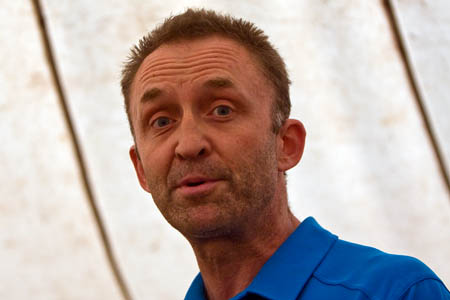
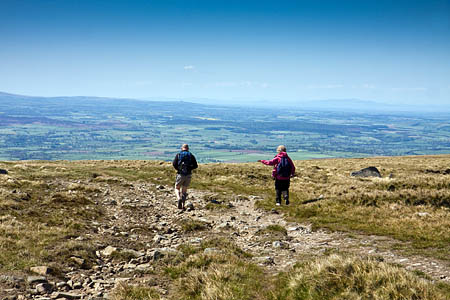
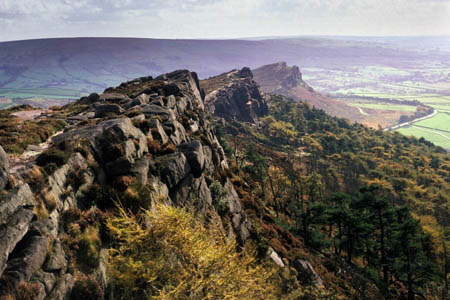
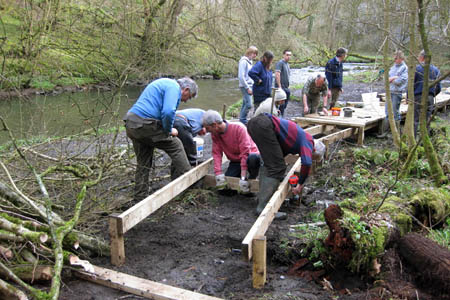
NeedsToKnow
22 November 2011"One of our ex-treasurers is not a climber; he’s a very keen hillwalker; he’s done all the munros and the marilyns".
So, who is it who's completed all the marilyns. The world needs to know this! By far THE most interesting revelation in this article.
Dave Turnbull, BMC
24 November 2011Yes - sorry about that, my error I believe, our Ex-treasurer Gordon Adshead has actually done 1554 (85%) of the Marilyns.
Dave T
NeedsToKnow
24 November 2011Thanks for, sort of, clarifying that Dave.
In fact there ARE 1554 Marilyns, so again I doubt he's done 1554. If Gordon has done around 85% of them then that would be somewhere just over 1300. Which probably is true.